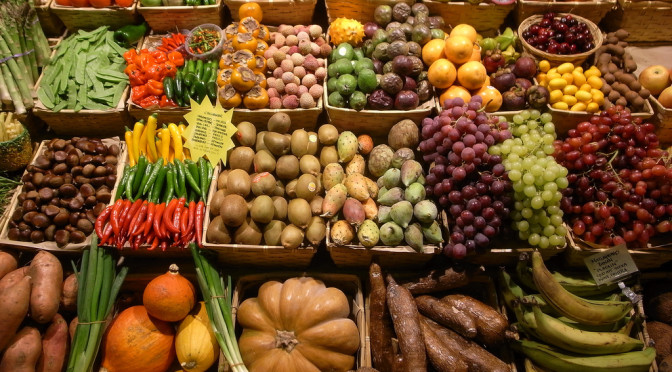From Mrs. Cog's Corner
The word good is a funny term. I took a philosophy seminar in college where my professor took the liberty of devoting the entire semester solely to aspects of the concept "good". As Cog likes to point out, we humans tend to categorize our judgements as black or white, good or bad. In reality, most things are both and neither and our polarizing view of things around us in these terms does not help us to benefit or grow. Food and water are a perfect example of these thoughts.
If we are starving, any basic food substance is good. At that moment, it matters little if the food set before us was grown organically or came from GMO sources. Moving up the financial ladder a bit, if we are poor and have limited resources to acquire food, it may seem quite good to procure enough to eat for the family, even if it isn't the highest quality. Hunger can be scary, especially when looking into the eyes of your children. Hunger taps the survival instinct squarely in the head (as well as the belly). No wonder control of the food system is so coveted by those seeking power.
Continuing up the so-called food chain, we encounter the level of subsisting formerly known as the middle class. Here we encounter choices which we are programmed to see as good (like voting). Perhaps paying a bit more for organic produce or better cuts of meat can boost our levels of health. That depends upon variables such as whether we have good information to base our choices upon and the good judgement to make the right selection for the right reasons.
When I look at people who appear to be financially secure, at least enough to eat whatever and wherever they choose, it appears that a funny thing happens. Good takes on a whole different meaning. Food must taste good, preferably look good and appetizing and often should be served under good circumstances (a nice restaurant or pleasing family dinner table.) Many who have reached this apparent level of security do not cook from scratch because they never had to learn, thus taking certain short-cuts in food prep. I call this fake cooking, which is all I knew until recently. It involves correctly cooking a steak, or broiling chicken or pork chops, while popping potatoes to be baked into the microwave. Doctor up some frozen corn or a salad from a pre-mixed bag and viola! You have a GOOD dinner.
Through other eyes, that same meal probably contained meat from a "factory farm" where conditions for beef, poultry and swine are not only inhumane, but disgusting when connecting the dots to your delicious and easy dinner. Practically all produce is grown and treated with chemicals of every type, and even "certified organic" food is often grown from GMO sources, which our bodies supposedly recognize as not natural. Let's face it, we'd like to eat the hamburger without thinking about the cow. That's pretty easy to do in our society where almost all production is highly specialized and thus our meals are compartmentalized away from the details of production and processing. It is why restaurants do so well.
I discuss this here to preface that conversations about "good" food are relative depending upon your financial situation, availability of food to eat and your weight upon which aspects of food is most important.
I began the process of questioning my food several years ago by asking where does it come from and what will this do to me if I eat this over the long term? Often I have found that involved answers I didn't like, images I didn't want in my head. The truth is we are indeed as sick as our deepest and darkest secrets, especially including where our food came from.
Through trying to question everything, my queries with respect to food have changed over time. Where does it come from? Can I produce it myself? Is there a local source where I can verify conditions it was produced in and then acquire it? If so, is it available in bulk? When I grow or find a source of good food, can I preserve and store it? For the food I cannot source, what are the red flags to watch for? What dangers am I accepting if I choose to not mind the sources of what I consume? How can I impress upon my family, perhaps an oblivious/invincible youngster, the importance of being concerned with the long term health ramifications of food choices?
As with approaches to your health, everyone has individual perceptions and needs to consider. I am only seeking to start a better conversation so we can help each other share information and experiences. I read repeatedly that in tough times, people who are more aware not only survive, but can often thrive because they looked deeper for good answers.
